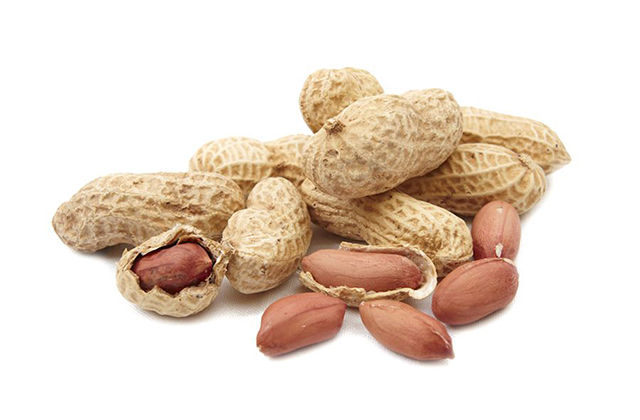Researchers Say They have Invented Non-Allergenic Peanuts

Scientists have created non-allergenic peanuts, a possible workaround for a potentially lethal allergy that plagues 2.8 million Americans. The advance also proved promising for wheat and other tree nut allergies.
When the product might be available was uncertain.
The U.S. Department of Agriculture said in a blog post that researchers at North Carolina A&T’s School of Agriculture removed allergens from peanuts by using enzymes to break down proteins that trigger the allergy.
Shelled, skinless peanuts are soaked in a food-grade enzyme that reduces two key allergens by 98 to 100 percent. The treated nuts can then be eaten or ground into flour to make other peanut products. The process doesn’t affect the peanuts’ shape or shelf-life, and won’t cause peanut products to go rancid or change color.
The treatment is not the same as genetic modification, which involves manually adding new DNA to an organism.
Researchers at the University of North Carolina at Chapel Hill’s School of Medicine confirmed the results through skin-prick tests on human test subjects, the USDA said.
“Peanuts are increasingly used in food products, which make it difficult for the allergic individuals to avoid accidental exposure,” said Jianmae Yu, a food and nutrition researcher at North Carolina A&T.
In severe cases, a peanut allergy can cause difficulty breathing, low blood pressure, vomiting, skin rashes, blisters and death. Parents go to great lengths to shield allergic children from any contact with peanuts. They’re not allowed, for example, in some dugouts where kids play ball. Some schools have banned peanut products to prevent inadvertent exposure.
North Carolina A&T signed an exclusive licensing agreement for the patented process with Xemerge, a Toronto-based food technology company, and is working to get hypoallergenic peanut products into stores “in the near future,” according to the USDA.
“This is one of the best technologies in the food and nutrition space we have seen,” Johnny Rodrigues, chief commercialization officer of Xemerge, said on the university’s Web site. “It checks all the boxes: non-GMO, patented, human clinical data, does not change physical characteristics of the peanut.”
Good news for the gluten-sensitive: The procedure could also work on wheat. Yu has already found a modified version of the procedure significantly reduces gliadin, the allergy-causing protein in wheat flour.
The research was supported by the USDA’s National Institute of Food and Agriculture.
source: washingtonpost.com

























